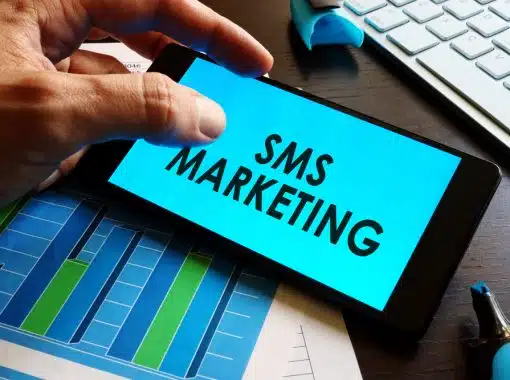Landing a huge sale must be one of the best feelings in the world. But there is nothing worse than letting a sale slip away, especially when you are not quite sure it did. It can cause you to second-guess your sales process and wonder why the sale took a wrong turn.
When a deal doesn’t go through, you may only be able to guess or possibly use call analytics and call tracking to help you find the reason. But if you are using one of the six sales behaviors that a LinkedIn survey found are “killing” deals, you may find your reason. In this article, we’ll look at six sales behaviors you should steer clear of.
Table of Contents
- Delivering Misleading Information
- Not Understanding Your Prospects and Clients
- Misunderstanding Your Own Products and Services
- Not Being Familiar With Your Competitors’ Products and Services
- Continuously Cold Calling or Emailing
- Being Associated With a Brand Consumers Consider Untrustworthy
Delivering Misleading Information
According to LinkedIn, this one tops the list of deal breakers that will result in lost sales for your sales team. Providing false information about your business’ products and services is more than just a white lie. It can damage a prospect’s trust in you and the product and services your business has to offer.
Also, remember you don’t have to outright lie to mislead. If your product doesn’t come with a warranty and fails to mention that up front, a prospect could feel misled.
Misleading information can also have ethical and legal ramifications, depending on the nature of the information a salesperson is providing. This can lead to reputational damage to both the salesperson and the business. The solution is to simply provide accurate and reliable information. This will build trust and establish a firm foundation for a successful sales relationship.
Not Understanding Your Prospects and Clients
If you don’t understand your prospect’s needs and pain points, it will be hard to make a sale. If you don’t do due diligence and get to know your customer, any one of these things can happen:
- Without knowing their needs, you may not be able to find a product or service that fits them, and the chances of making the sale could drop to nil.
- You may not be able to address their objections. For example, if a prospect is buying real estate and a salesperson doesn’t know they already own a home they want to sell, the prospect may hold off, not knowing it is the perfect time to start working on both the sale and the purchase.
- You may not know the person on the phone call has to talk to the real decision-makers before the deal can be closed and provide them with the necessary information to convince other stakeholders.
- If you’re in b2b sales and don’t know your client’s business, you may not be able to convey the benefits of your product or service in terms that speak to them.
Knowing your prospects and customers before you pick up the phone is key to helping them with their own decision-making process. By taking the time to listen to the customer and understand their needs, you can tailor your sales approach and increase the likelihood of a successful sale.
Misunderstanding Your Own Products and Services
Your prospects don’t want you to simply regurgitate the information that is available on your website or white papers. They expect you to be an expert on the products and services you are selling. And if you’re not, it can be really hard to demonstrate the high-quality products you are offering and close the sale, especially if it is the first time a prospect has heard of your brand.
Many customers and prospects won’t know completely what they want, but they most likely have a good idea about the problems they are having and will ask lots of questions. If you want to be known as one of the deal-makers in your business, you must have the answers. You may not have all of them while you’re on the phone call, but you should make it a point to let your prospects know you have their phone number, and will follow up immediately when you have answers.
Not Being Familiar With Your Competitors’ Offerings
Knowing the products and services you are selling inside and out is a start, but salespeople also need to know their competitor’s products and services. If they don’t know what the competition has to offer, it can be hard to position their product or service as the best choice. The prospect may already be shopping around and comparing features and already have their own opinions.
When you know your competitors, the benefits their products and services provide, and their pricing structure, you will be better equipped to position your offering in the best possible light.
Continuously Cold Calling or Emailing
Cold calls are a necessary evil sometimes, but cold calling doesn’t work as well as it used to. Customers are looking for companies that are staffed with experts, will listen to them, and can address their needs. This involves a conversation, and cold calls and emails aren’t great at starting them.
Building trust and rapport is an important part of the sales process, and this can be difficult to do through cold outreach alone. It can be more effective to establish a relationship with the potential customer through more personalized interactions, such as face-to-face meetings or scheduled phone calls.
Being Associated With a Brand Consumers Consider Untrustworthy
While you can prevent the other deal breakers in this list on your own, this one will need the help of your marketing team and business leaders to fix completely. You won’t be able to improve the brand’s reputation by yourself, but you can do your part by addressing the concerns and issues a prospect has while you’re on the phone call.
Closing a sale successfully requires avoiding common deal breakers. These include delivering misleading information, lacking understanding of prospects, misunderstanding your own products and services, being unfamiliar with competitors’ offerings, relying solely on continuous cold calling or emailing, and being associated with an untrustworthy brand.
The bottom line is if you want to be known as a dealmaker in your business, you must avoid the deal breakers we just covered. These include delivering misleading information, lacking understanding of your prospects, not knowing your own products and services, being unfamiliar with competitors’ products, and relying solely on continuous cold calling.
At the end of the day, sales professionals that focus on accuracy, understanding, expertise, personalization, and brand reputation in their sales strategy can increase their chances of closing deals and building strong customer relationships.












